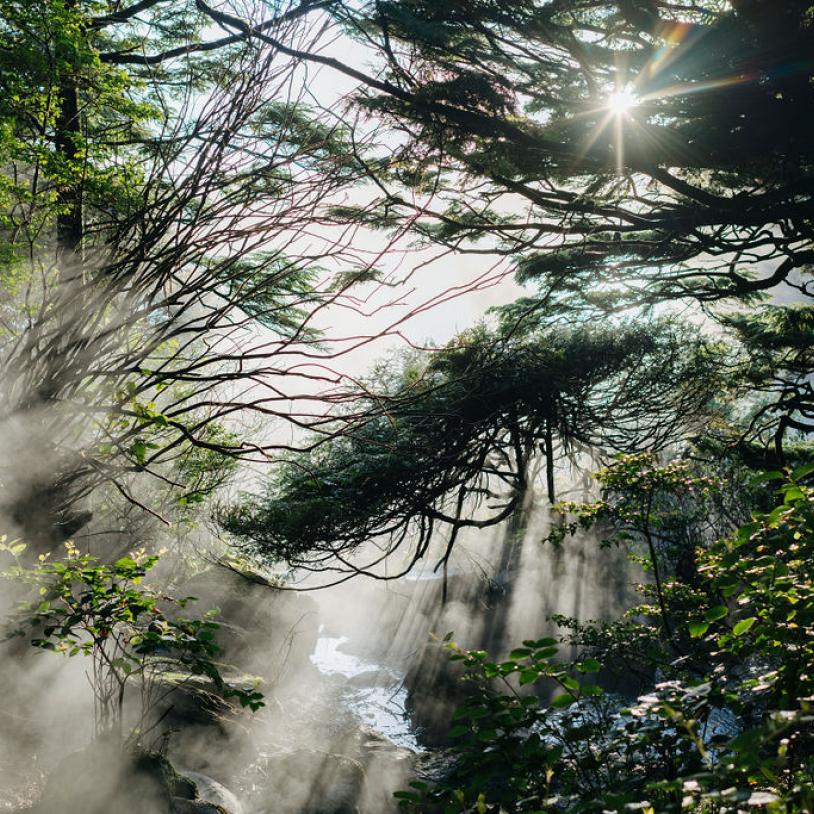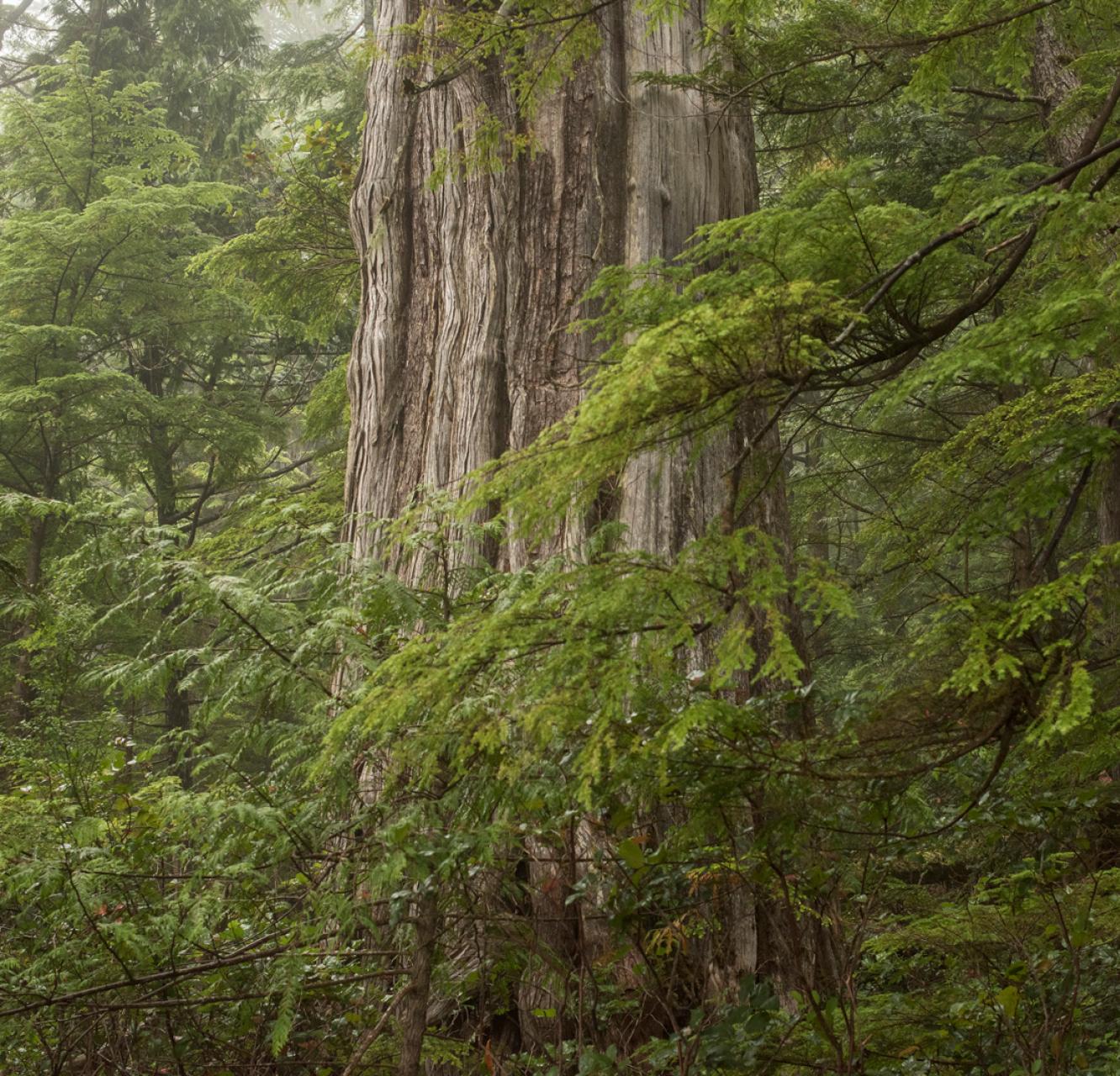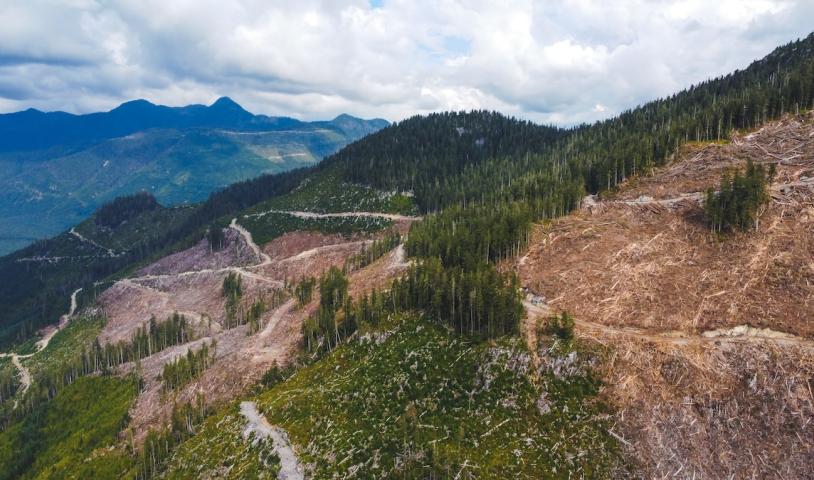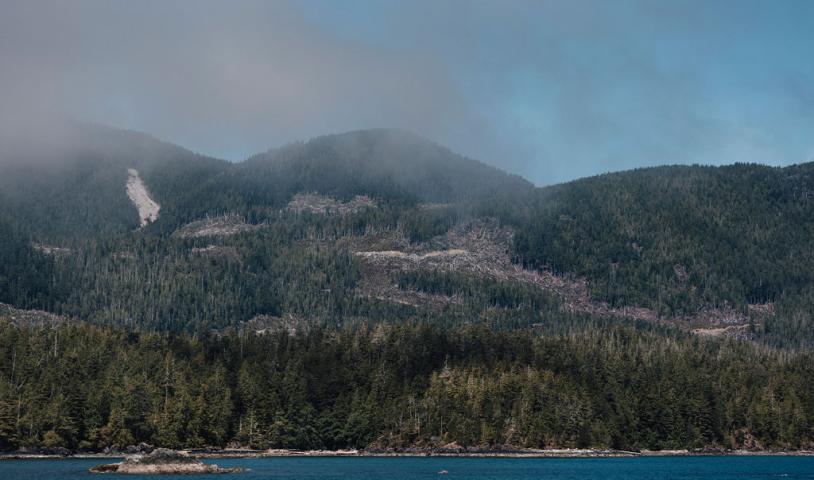Opposition Mounts to BC Liberal Governments Forest Policies
Wednesday, January 7, 2009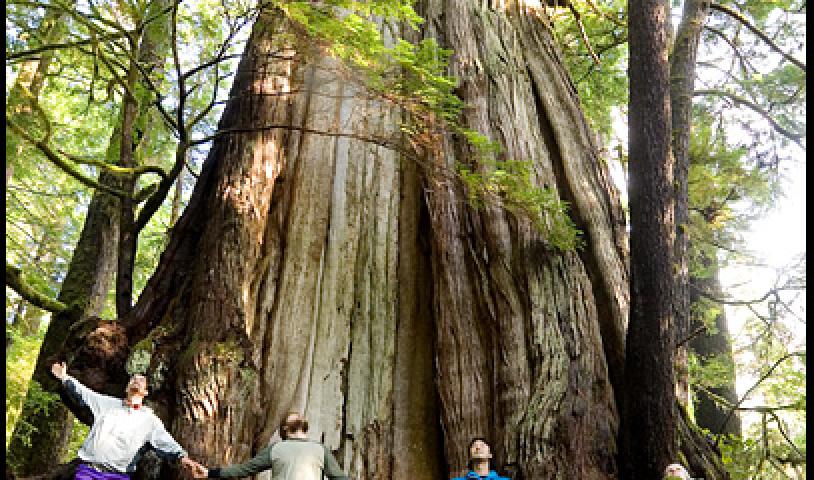
Opposition Mounts to BC Liberal Governments Forest Policies:
30,000-Strong Petition Calls on Premier Campbell to End Old-Growth Logging on Vancouver Island, Ensure Sustainable Second-Growth Logging, and to Ban Raw Log Exports
The groundswell of citizens opposition to the BC Liberal governments forest policies only four months before a BC election was evident at a press conference on January 8 at the BC Legislative Buildings in Victoria. 30,000 signatures on a petition were mounted on a giant display board calling for the protection of Vancouver Islands remaining old-growth forests, to ensure sustainable second-growth logging, and to end raw log exports to protect BCs forestry jobs. The Wilderness Committees campaign director Ken Wu and Port Alberni-Qualicum MLA Scott Fraser were on hand to speak to the media.
Conservationists are hoping that the petitions will help the BC Liberal government come up with New Years Resolutions to develop a new Old-Growth Strategy and set of provincial forest policies.
"We hope that Premier Campbell has some important New Years Resolutions for 2009 – namely, to develop plans to protect Vancouver Islands last old-growth forests and to sustain BCs forestry jobs," states Ken Wu, campaign director with the Wilderness Committees Victoria office. "Weve certainly set our own New Years Resolution to ensure that the fate of Vancouver Islands old-growth forests and forestry jobs will be central issues in the months leading up to the May provincial election."
Port Alberni – Qualicum NDP MLA Scott Fraser and the NDP Opposition intend to introduce the petitions into the BC Legislature during the February legislative sessions. Fraser applauds the strong public reaction: "The Campbell government has refused to bring in a much needed, comprehensive old-growth strategy. The public is demanding leadership to ensure that our remaining old-growth forests are not squandered for short-term gain; that they be allowed to survive for future generations and for global health."
Fraser believes that British Columbians will no longer tolerate government inaction. "These petitions should serve as a wake up call to an out of touch Premier and his Forest Minister. Instead of bringing in essential policy, this arrogant government has been satisfied to sit as spectators overseeing a complete betrayal of the public trust - and British Columbians have had enough."
Most of the 30,000 signatures were collected over the past 2 years by over 800 volunteers, primarily on Vancouver Island. Also, over 4000 of the signatures came online (see www.viforest.org ). On October 25, almost 3,000 people showed up at a Wilderness Committee protest (see http://www.youtube.com/watch?v=zRmXjq7ZSCI ) at the Legislative Buildings to protect Vancouver Islands old-growth forests and forestry jobs, making it the largest, active grassroots movement in the province right now.
Old-growth forests are important for many reasons: they support many species at risk that cant flourish in younger forests; they store 2 to 3 times more carbon per hectare than the second-growth tree plantations that they are being replaced with; they are fundamental pillars of BCs multi-billion dollar coastal tourism industry; they are important parts of many First Nations cultures; and they provide clean water for spawning salmon and trout.
Landsat satellite photos reveal that about 75% of Vancouver Islands original, productive old-growth forests have already been logged, including 90% of the valley bottoms where the largest trees grow and 99% of old-growth Douglas firs. Only 6% of the original, productive old-growth forests on Vancouver Island are protected in parks.
In hectares on Vancouver Island:
-Vancouver Island is 3.2 million hectares in total size.
-2.3 million hectares were originally covered in productive old-growth forests.
-700,000 hectares were and still are covered in low-productivity old-growth forests (bogs, stunted trees on rocky sites, and high altitude snow forests where most trees cant be profitably logged).
-Only 600,000 hectares of productive old-growth forests remain (ie. 1.7 million hectares have been logged).
-140,000 hectares of productive old-growth forests are protected in parks.
"The BC Liberal government is guilty of the most dishonest public relations spin-doctoring over our old-growth forests by using highly misleading statistics," says Wu.
Minister of Forests and Range Pat Bell often states that of 4 million hectares of coastal old-growth forests, only 769,000 hectares are available for logging – implying that the BC government has protected 80% of BCs coastal old-growth forests! In reality, the majority of the 4 million hectares are stunted trees growing on low-productivity sites – granite rock faces and high altitude snow forests – most of which cant be profitably logged. In addition, whenever the Wilderness Committee refers to Vancouver Island, Bell brings in the entire BC coast in order inflate the statistics about old-growth forests by including the Great Bear Rainforest, the northern rainforests which stretch up to Alaska. However, the northern rainforests are different than the forests of the south – they have colder climates, smaller trees, different types of forests and species, and a lot more protected areas and remaining old-growth forests, in contrast to the much smaller tracts of old-growth forests remaining and protected on Vancouver Island and the southern coast.
"Virtually the whole world is logging second, third or fourth growth forests now, but the BC Liberal government still takes the anti-environmental stance that its fine to finish off the last unprotected old-growth forests on Vancouver Island," states Wu. "By defending the destruction of Vancouver Islands last old-growth forests, Pat Bell and the BC Liberal government are acting as the despoilers of the Best Place on Earth. With a BC election coming up in only 4 months, lets hope they reverse their intransigence and PR spin-doctoring - or else face the consequences."
For maps and statistics visit viforest.org
